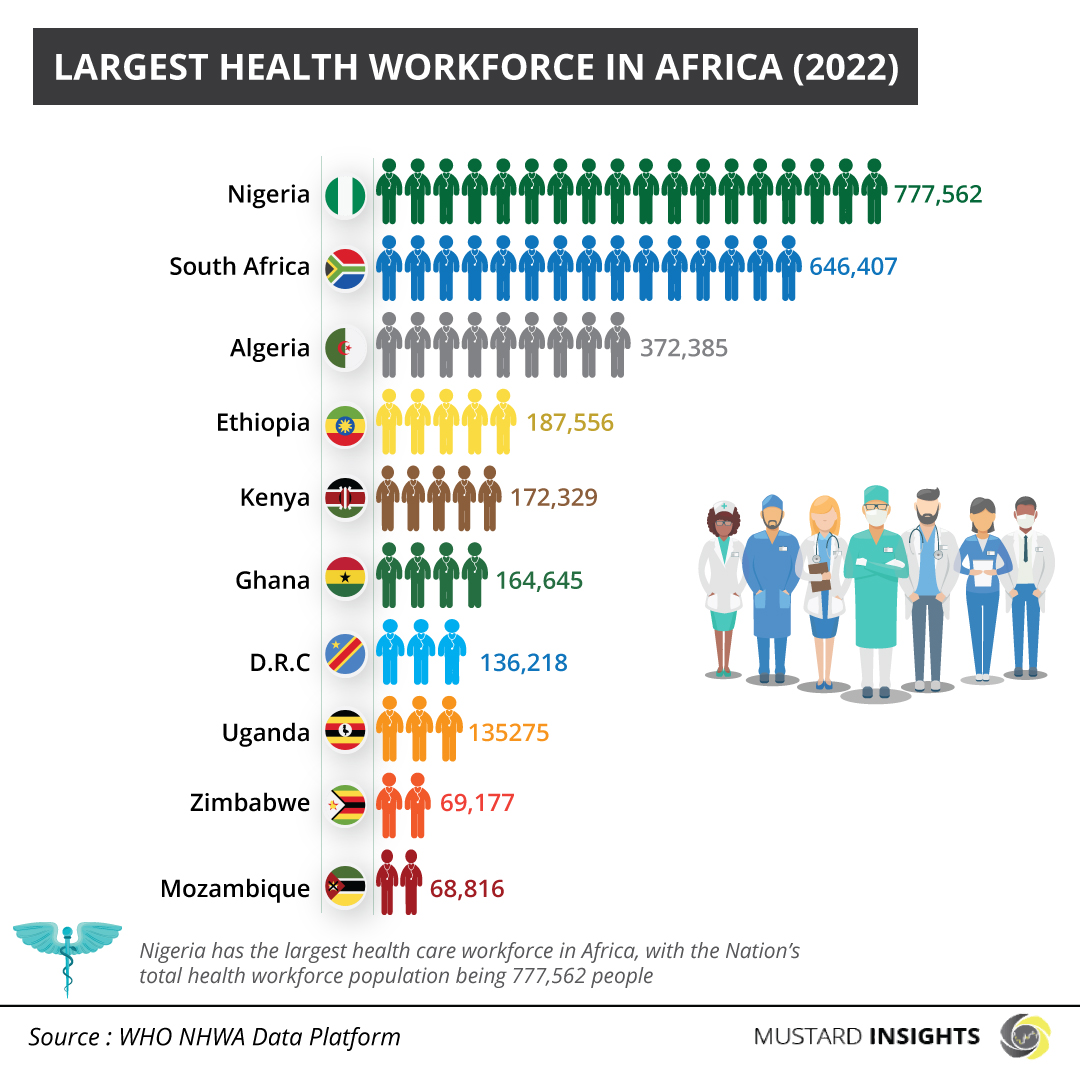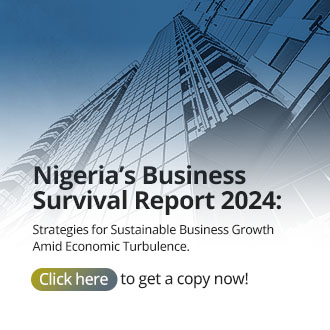Africa is the second-largest and second most populous continent on earth with an estimated population of 1.4 billion people based on latest U.N estimates. According to the latest report by the World Health Orgaization (WHO), Nigeria, South and Ghana have the highest health workforce density in Africa.

Africa is the second-largest and second most populous continent on earth with an estimated population 1.4 billion people based on latest U.N estimates. According to the latest report by the World Health Orgaization (WHO), Nigeria, South and Ghana have the highest health workforce density in Africa.
According to the WHO and National Health Workforce Accounts (NHWA), data compiled for the health workforce in Africa’s health industry in 2022 shows Nigeria, Africa’s most populous country, has the highest health workforce in Africa. In the report, Nigeria has a total health workforce population of 777,562. South Africa and Algeria have the second and third largest healthcare workforce in Africa, with total health workforce populations of 646,407 and 372,385 people, respectively.
Nigeria may been ranked having the highest total health workforce density in Africa jointly along side South Africa and Ghana, but do the numbers of health workforce available in the countries match the booming population across the continent?
Breakdown & Key Metrics
Professional healthcare workers play a critical role in improving access to and quality health care of the population. They provide essential services that promote health, prevent diseases and deliver health care services to individuals, families and communities.
Health workers are the critical pathway to attaining the health target in Sustainable Development Goal (SDG) 3, which seeks to ensure health and well-being for all, at every stage of life. Also, it aims to achieve universal health coverage and provide access to safe and effective medicines and vaccines for all.
- The report by the WHO and NHWA ranks Ethiopia in fourth with a total health workforce of 187,556 and Kenya in fifth with a total health workforce of 172, 329 people.
- Ghana is sixth on the list with a total health population of 164, 645 people and the Democratic Republic of Congo (DRC) with 136, 218 people is seventh on the list.
- Uganda, not for off from the DRC with a total health population of 135,275, occupies an eighth position on the list and completes the top eight countries with a total health population of over 100 thousand.
- Zimbabwe and Mozambique complete the top 10 African countries with the largest health workforce in Africa in 2020 with 69, 177 people and 68,816 people, respectively.
Key Metrics in Perspective
While it is encouraging to recognize countries having a large health workforce density, it pales compared to the population in each country. For a country with a large population like Nigeria, the ratio of health workforce density to the population density paints an entirely new picture. It masks the reality of how low or insufficient the number of health workforce for each country is to cater for every need of its citizens.
Nigeria currently has an estimated population of 215.46 million people and a health workforce density of 777,562. This means a ratio of 1 health worker to 277.1 individuals.
South Africa has a population of 60.67 million people and a health workforce density of 646,407. This translates to a ratio of 1 health worker to 93.9 individuals.
Algeria has a population of 45.29 million people and a health workforce density of 372,385. This translates to a ratio of 1 health worker to 121.6 individuals.
These figures above, including those obtainable for other countries in Africa, give an accurate indication of the state of the health industry across the African continent. It further explains why access to adequate healthcare facilities and basic amenities is a prevailing issue in Africa.
Takeaway
A skilled workforce is the backbone of every health system, yet the World Health Organization (WHO) estimates there is a shortage of 17 million health workers globally.
Africa’s health workforce accounts for 4% of the world’s total health workforce with severe impacts of the shortage of health workers reflecting in its population accounting for 24% of global disease cases.
Thoughts?
We won't share your email address. All fields are required.
